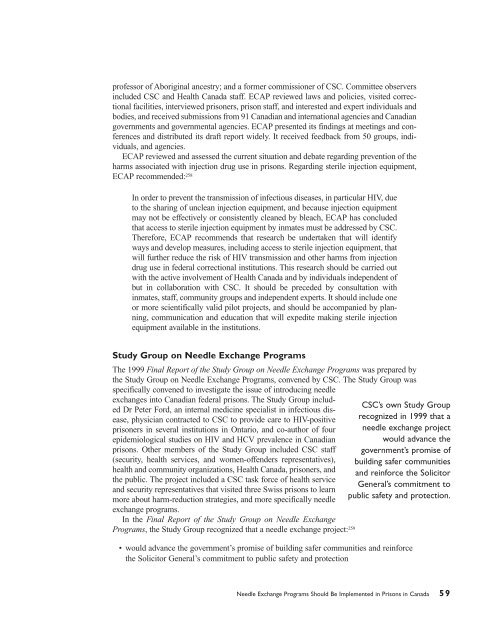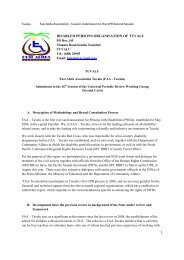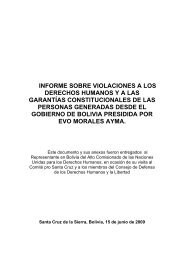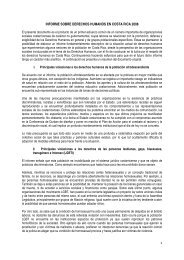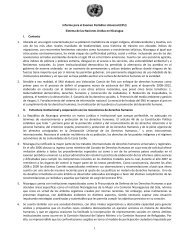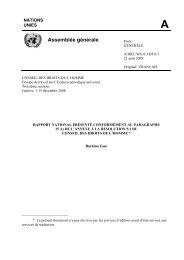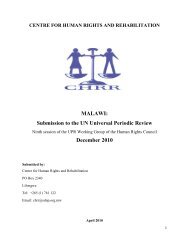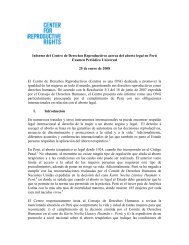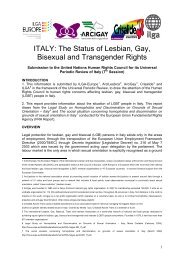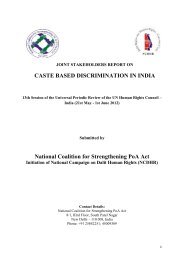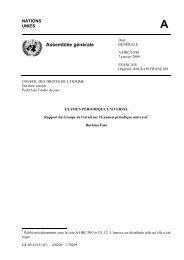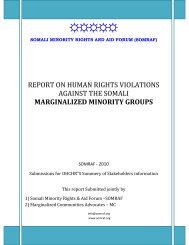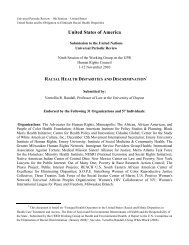Prison Needle Exchange: Lessons from a Comprehensive Review ...
Prison Needle Exchange: Lessons from a Comprehensive Review ...
Prison Needle Exchange: Lessons from a Comprehensive Review ...
Create successful ePaper yourself
Turn your PDF publications into a flip-book with our unique Google optimized e-Paper software.
professor of Aboriginal ancestry; and a former commissioner of CSC. Committee observers<br />
included CSC and Health Canada staff. ECAP reviewed laws and policies, visited correctional<br />
facilities, interviewed prisoners, prison staff, and interested and expert individuals and<br />
bodies, and received submissions <strong>from</strong> 91 Canadian and international agencies and Canadian<br />
governments and governmental agencies. ECAP presented its findings at meetings and conferences<br />
and distributed its draft report widely. It received feedback <strong>from</strong> 50 groups, individuals,<br />
and agencies.<br />
ECAP reviewed and assessed the current situation and debate regarding prevention of the<br />
harms associated with injection drug use in prisons. Regarding sterile injection equipment,<br />
ECAP recommended: 258<br />
In order to prevent the transmission of infectious diseases, in particular HIV, due<br />
to the sharing of unclean injection equipment, and because injection equipment<br />
may not be effectively or consistently cleaned by bleach, ECAP has concluded<br />
that access to sterile injection equipment by inmates must be addressed by CSC.<br />
Therefore, ECAP recommends that research be undertaken that will identify<br />
ways and develop measures, including access to sterile injection equipment, that<br />
will further reduce the risk of HIV transmission and other harms <strong>from</strong> injection<br />
drug use in federal correctional institutions. This research should be carried out<br />
with the active involvement of Health Canada and by individuals independent of<br />
but in collaboration with CSC. It should be preceded by consultation with<br />
inmates, staff, community groups and independent experts. It should include one<br />
or more scientifically valid pilot projects, and should be accompanied by planning,<br />
communication and education that will expedite making sterile injection<br />
equipment available in the institutions.<br />
Study Group on <strong>Needle</strong> <strong>Exchange</strong> Programs<br />
The 1999 Final Report of the Study Group on <strong>Needle</strong> <strong>Exchange</strong> Programs was prepared by<br />
the Study Group on <strong>Needle</strong> <strong>Exchange</strong> Programs, convened by CSC. The Study Group was<br />
specifically convened to investigate the issue of introducing needle<br />
exchanges into Canadian federal prisons. The Study Group included<br />
Dr Peter Ford, an internal medicine specialist in infectious disease,<br />
physician contracted to CSC to provide care to HIV-positive<br />
prisoners in several institutions in Ontario, and co-author of four<br />
epidemiological studies on HIV and HCV prevalence in Canadian<br />
prisons. Other members of the Study Group included CSC staff<br />
(security, health services, and women-offenders representatives),<br />
health and community organizations, Health Canada, prisoners, and<br />
the public. The project included a CSC task force of health service<br />
and security representatives that visited three Swiss prisons to learn<br />
more about harm-reduction strategies, and more specifically needle<br />
exchange programs.<br />
In the Final Report of the Study Group on <strong>Needle</strong> <strong>Exchange</strong><br />
Programs, the Study Group recognized that a needle exchange project: 259<br />
CSC’s own Study Group<br />
recognized in 1999 that a<br />
needle exchange project<br />
would advance the<br />
government’s promise of<br />
building safer communities<br />
and reinforce the Solicitor<br />
General’s commitment to<br />
public safety and protection.<br />
• would advance the government’s promise of building safer communities and reinforce<br />
the Solicitor General’s commitment to public safety and protection<br />
<strong>Needle</strong> <strong>Exchange</strong> Programs Should Be Implemented in <strong>Prison</strong>s in Canada 59


